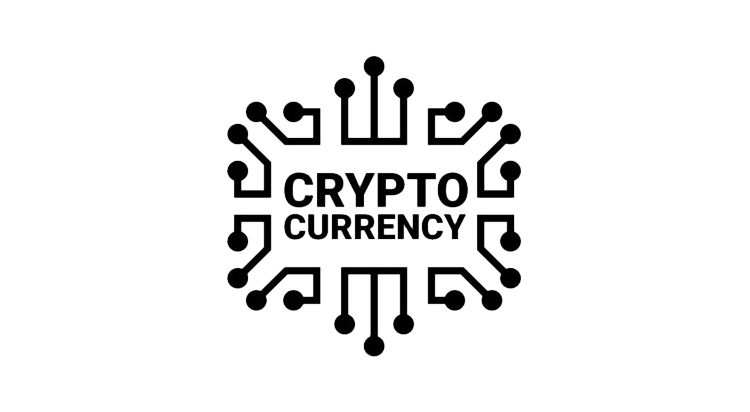The popularity of cryptocurrency is proliferating, and more and more participants appear in the virtual currency market. To understand all the nuances of working with bitcoins and other digital currencies, beginners need to spend a lot of time looking for crucial and necessary information. To save time for traders, there is a list, which gives answers to the most popular questions regarding cryptocurrencies.
Is cryptocurrency anonymity truth or myth?
This is more of a myth than truth. Yes, cryptocurrencies themselves are anonymous, some, like Monero, have absolute anonymity, until you send it on the exchange where verification is required. And even more comfortable to say, if they want to find you, they will find you.
You need to understand that there are pure cryptocurrencies (BTC, LTC), and there are platforms (ETH). The former are digital assets and have no practical use (unless as a payment system, and even that, with several limitations). The latter is a project that may be useful in practice. Therefore, in the first case, obviously, we are talking about a bubble, since the cost of such assets, based on practical considerations, is simply zero, and in the second case, it all depends on the parameters of a particular project.
Where to store BTC and/or other cryptos?
There are at least 3 options:
- storage on exchanges;
- storage in a traditional full or light wallet (that works only online; average security, can be recommended for a relatively small investment);
- storage in hardware or cold wallet (for the largest amounts that are scary to lose).
Storing cryptocurrency on the exchange such as can be found on trustedbrokerz.com makes sense only when you are actively trading — changing one cryptocurrency to another, trying to make money on the growth of a ticker in relation to the dollar or BTC, in general, doing what is called cryptocurrency trading.
Besides, there is a wallet for each of the altcoins, and you can download it from the official website. This option is suitable for a few as you will not install a wallet for each coin purchased. There are multi-currency wallets in which you can store several cryptocurrencies or tokens at once, for example, desktop Exodus, mobile Coinomi, hardware Ledger Nano S, and others.
Why does the price of altcoins grow?
The explanation is simple and complicated at the same time. Cryptocurrency traders (and/or those who consider themselves to be) in the bull market adhere to a group of cryptocurrency growth criteria:
- technical analysis (this works, but not always).
- the news background (always works, the degree of influence often depends on the untwisted and capitalized coins or a token)
- the behavior of BTC (if BTC rises sharply, its market share usually increases, and the share of altcoins and their value fall, while with a slowdown in BTC growth and price correction, the share of altcoins and their value increases).
Upon a detailed consideration and addition of all three criteria, as a rule, the answer is why this or that coin or token is growing. In general, it can be summarized that the market under discussion is so wild and small that “moods” still reign on it: bad or good news can shake the course tremendously.
Consider an example. In late November – early December, LTC grew rapidly (from $40 to $300).
The rally began with the news that one of the largest companies in the gaming industry — Steam — stopped accepting BTC for payment and gave preference to LTC. The answer to the question “Why did this happen?” is obvious: the cost of transactions in the BTC network had grown so much that it was completely unprofitable and pointless to buy relatively inexpensive computer games for it. The LTC network had no such problem at that time.
A bit later, another precedent took place. Users of exchanges had a recurring problem: during particularly powerful jumps in the cost of BTC, transactions in its network hung for several days, and exchanges even froze the withdrawal of funds from BTC wallets. The smart users found a way out: they exchanged BTC for LTC or ETH and withdrawn them. Soon, due to an increase in demand, the LTC and ETH rates jumped, and some exchanges blocked the withdrawal of these cryptocurrencies as well.
Other investors, observing LTC growth and reading the news and looking at stock charts, also followed FOMO train and bought LTC and ETH. The rally continued until the second week of December. Conclusion: the liquidity of a coin can influence its rate.
Where to buy BTC without a commission from a credit card or cash?
The answer to the title question — “Where to buy cryptocurrency without commission?” — is unequivocal: nowhere. 🙂
Just think for a moment, why anyone would like to sell the product/service/asset with no profit? Yes, sometimes, marketing and promotion take place. But does BTC need advertising? No longer.
To begin with, the popularity of BTC has led to multiple increases in transaction costs, and it is no longer possible to exchange or transfer BTC for a penny (so-called satoshi). Be prepared for the fact that you will have to pay $20-50 only for transfer within the BTC network (regardless of the amount of transfer). Besides, bank commissions, commissions of exchange sites or exchange platforms — the threshold for entering this market is continuously increasing.
So, where to buy BTC and other cryptocurrencies? You should be careful with P2P platforms as there are different tricks that will leave you out in the cold. Today, it’s recommended to buy LTC, ETH, BTC, and other cryptos on the cryptocurrency exchange as the safest and guaranteed method.
While choosing one, pay attention to its security measures in place, and better trade on the one which places cybersecurity in the first place, like ROKKEX, a new player in the market.
